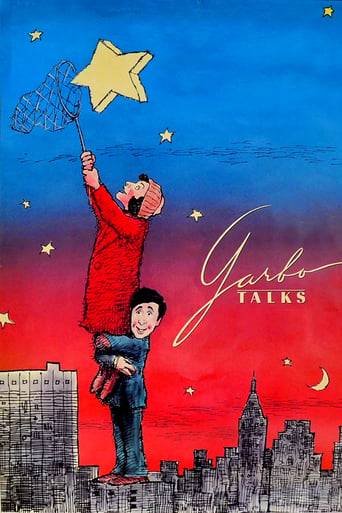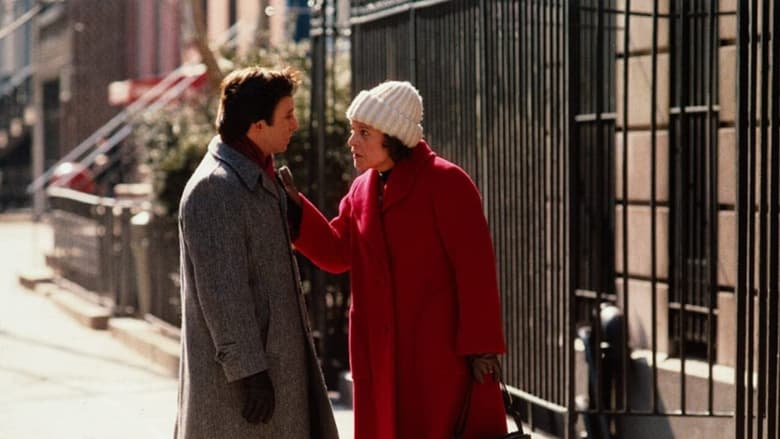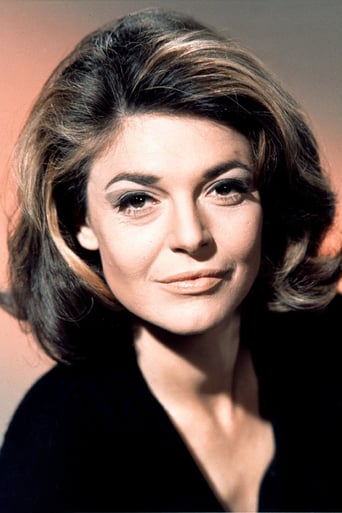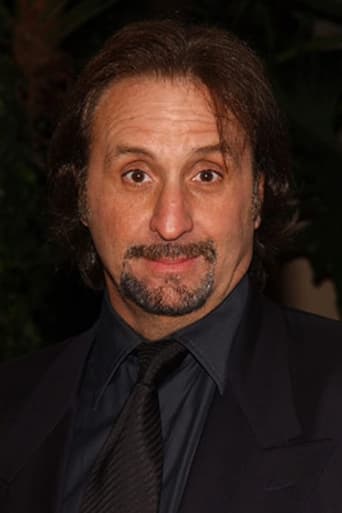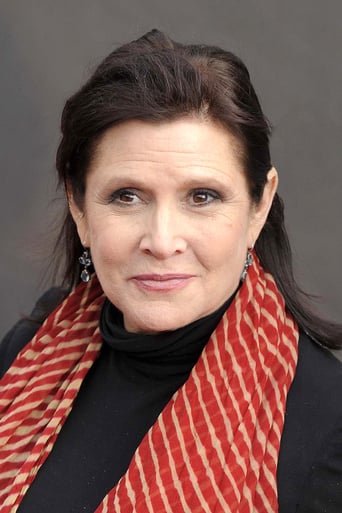Garbo Talks (1984)
When New York accountant Gilbert Rolfe finds out his mother has a brain tumor, he is devastated. His incorrigible mother, Estelle, has one last wish: to meet the great Greta Garbo. Gilbert, wanting to do this last thing for her, sets out on a wild goose chase through the streets of New York City to track down the iconic star, at the expense of his personal life and much to the chagrin of his wife, Lisa. Can he find Garbo before it's too late?
Watch Trailer
Cast
Reviews
Although it has its amusing moments, in eneral the plot does not convince.
If you like to be scared, if you like to laugh, and if you like to learn a thing or two at the movies, this absolutely cannot be missed.
An old-fashioned movie made with new-fashioned finesse.
The film never slows down or bores, plunging from one harrowing sequence to the next.
..."It's not true-- I was arrested last month in Brooklyn; they gave me a sandwich and some cigarettes-- it was Mozzerella Cheese." This is the response of Estelle Rolffe when she is told, "They don't give you nothing' in detention, honey." She's in jail, and she's demanding to know: "Who do you have to pay off to get a little water around here?"Her son dutifully comes to pay her bail, and, asks her if it's ever going to stop... "marching for Washington, getting arrested, lying down in front of cars"...? But as Estelle reminds him, "I am who I am, you are who you are." She also says she doesn't mind going to jail for something she believes in. She's a firm believer that if the present generation would be a little more active, she could take it a little more easy. Her son Gilbert, is dominated by a spoiled, pampered wife, who never stops telling him that she wants him to move to California where her parents are. He's pushed around at work and never says a word. And somewhere in the middle of all this is the infamous Greta Garbo. We know Estelle adores her because we are introduced to her when she is crying her eyes out at the end of "Camille"-- possibly Garbo's best known film... "You can get other opinions, but there's nothing to be done." When Estelle begins having headaches that turn out to be a brain tumor, Gilbert gets the news he must pass on to his mom. "That's an attitude she won't understand," he says. So, Estelle is given the "speech" for a woman who now has but a short time to live, and in response she says just one thing... It's not a last wish... she has a lot more, she's just short on time. Now, Gilbert is spending his lunch hours hunting for biographies and calling obscure phone numbers. In the process, he meets an eccentric, aspiring actress named Jane Mortimer, who adores him because he's so "off center." Estelle loves Garbo possibly even more than she loves Gilbert... What would you do? When the film was released in 1984, the real Garbo was alive and well, and living in New York (where the film takes place). Many of the "rumoured" details of Garbo's later life are depicted in the story, such as her notorious hatred of photographers, her vacant apartments in the building where she lived, her Swedish maid, and mention that she still has the first nickel she ever made (by a forgotten actress who knew her back in the day). To create a movie centered around a woman still living, right in the city where she lived, must've indeed been a risk; and when you consider that the real Garbo was most famous in later life for her being a recluse, it makes the mystique of the movie greater. Superb performances by Anne Bancroft, Carrie Fisher, and Catherine Hicks, make this film one of my very favorites. The cheesy, 80's violin music in the scenes is way overkill, but under that is an endearing story of an admiration for a mother Gilbert loved, but didn't understand... so he goes on a journey which helps him understand himself better than ever before.
Anne Bancroft plays Estelle, a dying Jewish mother who asks her devoted son (Ron Silver) to locate reclusive one-time movie star Greta Garbo and introduce the two before Estelle checks out for good. Might've been entitled "Bancroft Talks" as the actress assaults this uncertain comedic/dramatic/sentimental material for its duration. Hot-or-cold director Sidney Lumet can't get a consistent rhythm going, and Bancroft's constant overacting isn't scaled back at all by the filmmaker--he keeps her right upfront: cute, teary-eyed and ranting. Estelle becomes a drag on this scenario (not that the thinly-conceived plot has much going on besides). Silver and co-stars Carrie Fisher and Catherine Hicks end up with very little to do but support the star, and everyone is trampled by her hamming. *1/2 from ****
This film brought to mind our own encounter with the elusive Ms. Garbo one afternoon as we held the door open for her at the 59th St. entrance of Bloomingdale's. Ms. Garbo could be seen around her East Side neighborhood, where people didn't even stare at her out of respect of her privacy! Manhattan in the 50s, 60s and even 70s had a lot of antique dealers on 3rd. Ave. and Ms. Garbo was a constant figure browsing those stores. Greta Garbo, the once silver screen goddess, lived a modest life in Manhattan. Her trade mark was the shade of lipstick she always wore and the camel hair coat one saw on her, until in later years when she adopted a brown duffle coat whenever she went out.Sidney Lumet's film pays homage to that fleeting figure. The mysterious woman is at the center of a film that perhaps is not so much about the mythical figure, as much as the allure of what she stood for.The story of the terminally ill Estelle Rolfe is a sweet account in how her loving son Gilbert tries to bring the illusion of the movies to his dying mother. The movie shows to what lengths Gilbert goes to grant Estelle a moment with the person she most admired, the actress Greta Garbo. Estelle was a fan, but more than that, she was a no nonsense lady who championed righteousness above all.Anne Bancroft was born to play Estelle. Ms. Bancroft knew this woman and her portrayal benefits from the way she plays her. As the son, Ron Silver is good. He will go to whatever extreme to please his mother. Carrie Fisher is Lisa, the California girl married to Gilbert who doesn't want to stay in New York. Veteran actors like Howard Da Silva, Stephen Hill, Herminone Gingold, Dorothy Loudon, Harvey Fierstein are seen in the film in supporting parts."Garbo Talks" is not one of Sidney Lumet's best movies, but still, one gets the feeling what it is to live in New York with this tale about the celluloid meeting reality in Manhattan.
This is not a film about Greta Garbo, and La Garbo isn't in the movie, not really. Moreover, from a writer's perspective, Greta Garbo could have been any quest that we seek with sincerity and purity of intention. But in this case it is Garbo, and her mystique permeates this film through her haunting absence, which lends Garbo Talks its beautiful sense of longing.Anne Bancroft gives a tour de force performance as the dying mother who never stops championing her causes, and wishes only one thing; to meet Garbo before she dies. Ron Silver is her put upon son who sacrifices everything, including his marriage to a hilariously unsympathetic Carrie Fisher to give his mother her dying wish.Hermione Gingold is utterly side splitting as one of the improbable steps in young Gilbert's search for the elusive Garbo. Harvey Fierstein is brilliant in his understated portrayal of a gay man Gilbert meets on the ferry to Fire Island, where he hopes to find Garbo at her retreat.Garbo is played by the incomparable Betty Comden, seven time Tony Award winning composer who co-wrote such classics as Singin' in the Rain, Auntie Mame, Bells are Ringing, and the Barkley's of Broadway.There is a scene, late in the movie, where Bancroft is delivering a soliloquy, which stands as one of my favorite moments in film. Sally Field should have given her Oscar that year to Bancroft. It is only then, in her emotional epiphany, that Ms. Bancroft reveals the delicate yet powerful theme of the film. It was never about Garbo. She was merely a symbol of the quest to find a unifying thread that gives meaning to a life remembered. The buildup may be tauntingly slow, but the payoff is astounding.Why do I love this movie? It's about a feeling, a mood, a tone, owing in large part to Sidney Lumet's light yet masterful touch. The lyrical pace and the glorious ending are movie art, floating as gentle as a cloud above the din of its heavy handed contemporaries.
